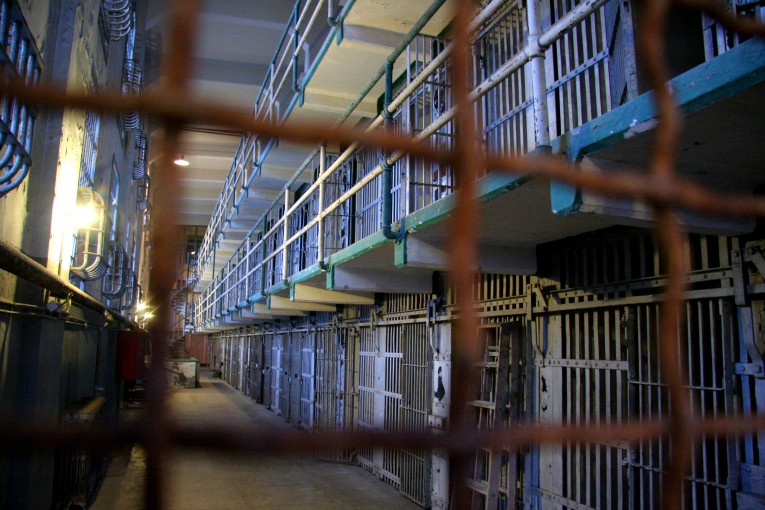
 By Rory Fleming
By Rory Fleming
Most of the states with incarceration rates in the top 15 are deeply conservative states. Only a handful of them, including Georgia, Arizona, and Florida, were considered “battleground states” by CNN in the 2020 Presidential race. Oklahoma, Louisiana, and Mississippi are all in the top five.
However, Arizona and Florida stand out on the list in several ways—like their racial diversity, resurgence of an activist left, and possession of several liberal cities which are home to a significant percentage of the state population. While Georgia has Atlanta, Arizona has Phoenix and Tucson. Florida has Miami, Tampa, and more. Texas, another highly incarcerated battleground  state, is significantly more rural than either.
state, is significantly more rural than either.
No matter what decarceration activists do or how large their ranks swell, it seems that little will change the status quo in Florida or Arizona. But less discussion has been historically dedicated to why.
That is starting to change. Within the last month, ProPublica ran a story on a former prosecutor named Steve Twist, who many say is the person most responsible for Arizona’s status quo. By milking strategic friendships with prominent conservative figures, Twist made it his personal mission to make tough-on-crime politically unchallengeable. As a patron of various entities, including Arizona police chiefs, the attorney general’s office, and even the NRA, he helped write and enact the state’s three strikes law and its anti-parole “truth in sentencing” law.
According to research from Phillips Black Project, attorneys John Mills and Aliya Sternstein, the state’s founders, were motivated in part by a progressive view of crime and punishment. Twist undid that.
The article about Twist shares a genre with a 2017 HuffPost piece written by Harvard Law Professor Ron Sullivan about a Florida attorney named Arthur “Buddy” Jacobs.
Like Twist, Jacobs is a lawyer who spent the last 40-plus years advocating for a harsher criminal justice system. After briefly working as a line prosecutor, he went into political advocacy as the General Counsel and Lobbyist for the Florida Prosecuting Attorneys Association. Whenever elected prosecutors in Florida were advocating for non-unanimous jury verdicts to be sufficient for sending convicted people to death row, or pushing for more kids to be prosecuted as adults, Jacobs was in the director’s chair, likely donning his signature white suit. (Yuck.)
It is strange to think that two unelected former prosecutors assembled enough social and political capital in their respective states to be able to essentially veto any criminal justice reform legislation that does not fit with their hypercarceral ideology. But that is exactly what seems to have happened. With disgruntled prosecutors leaving reform-minded DA offices to become spokespeople for mass incarceration, California may be at risk of a similar fate.
Rory is a writer and an attorney

Oh my…being a lawyer is bad enough but also being solitary, white and male makes it totally revolting.
Saw this article yesterday, make of it what you will:
https://www.washingtonexaminer.com/opinion/black-people-name-crime-as-a-major-problem-while-dismissing-racism
30 percent of Blacks think their own police are doing a bad job – that’s astronomically high. Remember the classic statistic – Congress has an extremely low approval rate, yet the incumbents almost always win, why is that? Because people approve their own congressman. Same thing here. The more generic approval rating for Blacks of police is below 50%.
From the article I posted, I’m not seeing that “30 percent of Blacks think their own police are doing a bad job”.
The way that it’s worded shows that 70% “approve of their local police departments”.
Would have to look at how the poll was conducted, to see what the 30% actually consists of. Could be neutral ratings, or a failure to even respond to the question. Was that listed in the article? (I only skimmed it.)
In any case, the results would need to be compared to results showing how people of other skin colors view that same question, for it to have any racial comparison meaning.
You haven’t provided any support for your claim that the “more generic approval rating for Blacks of police is below 50%”.
Actually, one has to examine all of these types of claims (including the ones in the Vanguard article) with skepticism. Polls themselves are often riddled with weaknesses regarding the ability to derive actual conclusions.
But clearly, there are politics “behind the scenes” with all of this.
That’s why you gotta click on the source rather than relying on the right wing talking points.
I wasn’t going to say anything unless you chimed in (again). For no apparent reason, as usual.
But now that you mention it, one of the links above shows this:
Apparently, you rely on “left-wing” talking points.
Except when it comes to development. (That’s when you’re solidly on the “right”.)
At what point are you going to provide evidence for anything you claim? (Note that I have not made any claims, myself.)
I will claim this, however: Those who “think link the Vanguard” are in the minority across all communities. Hence, the Vanguard’s frustration with the “mainstream media” (as mentioned more than once by David).